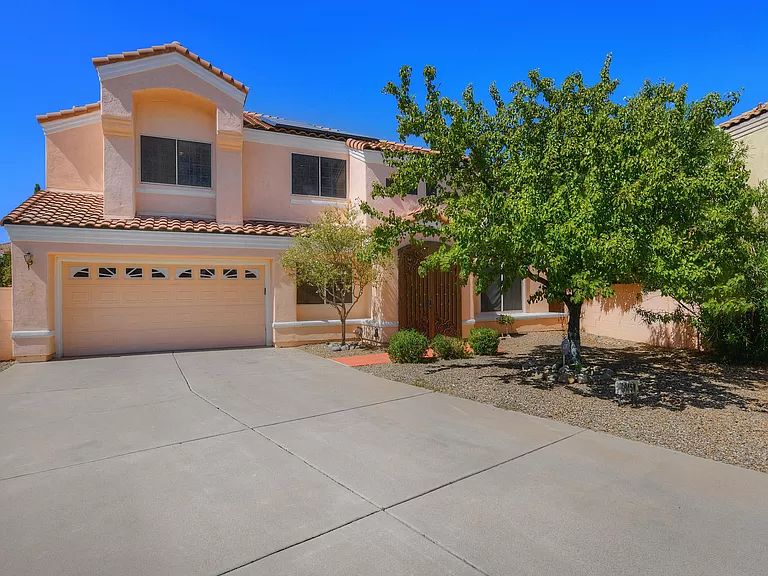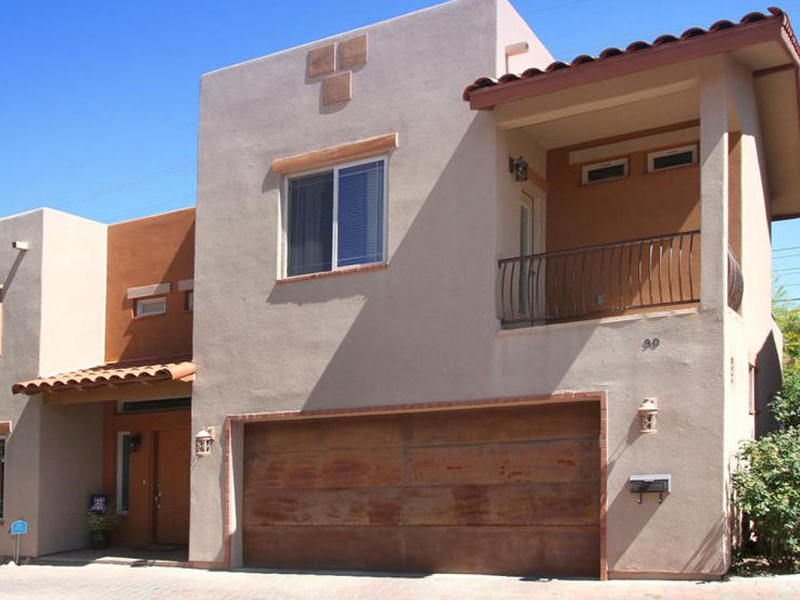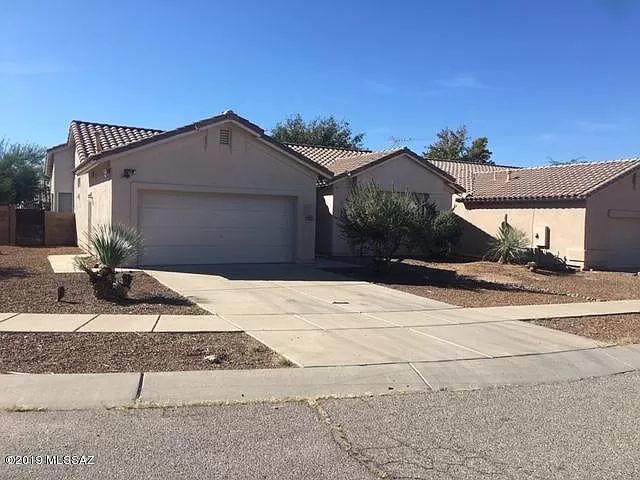Is Your Garage Door Stuck? Right here's What to Do Initial
When your garage door won't open up, begin with these necessary safety and security checks before trying any kind of repair work. Initially, make sure no one is standing near the door which vehicles are clear of the opening. Try to find obvious signs of damage like busted panels, curved tracks, or hanging cable televisions. If you see a snapped spring or badly damaged elements, quit immediately and call a specialist—-- these fixings need specialized tools and proficiency to take care of safely.

Inspect These 6 Points Prior To Calling a Specialist
Before assuming you need expensive fixings, run through this fast analysis list that solves most garage door troubles:
-
Power source: Verify the opener is plugged in and the electrical outlet is functioning
-
Remote batteries: Replace dead batteries in your push-button control
-
Hand-operated lock: Inspect if a person inadvertently involved the manual lock
-
Obstructions: Try to find particles blocking the door's path or sensors
-
Emergency launch: Make sure the red emergency situation cord hasn't been pulled
-
Breaker: Confirm the garage circuit hasn't tripped
These simple checks deal with roughly 70% of garage door problems without calling for expert treatment.
10 Typical Reasons Your Garage Door Won't Open Up
Comprehending why your garage door opener isn't working aids you choose the right solution. Below are the most constant causes house owners experience:
Dead remote batteries stand for the simplest solution—-- when batteries pass away, the remote can't send signals to the opener. Power outages or stumbled breakers cut electrical energy to the electric motor. Damaged springs prevent the door from lifting effectively and call for instant specialist focus. Sensing unit misalignment reasons security systems to block door operation. Track blockages quit rollers from relocating smoothly. Electric motor overload triggers automated shutoffs when the opener identifies resistance. Limitation switch troubles perplex the opener about door placement. Wire damages interrupts the training mechanism. Weather-related issues influence door motion throughout severe temperatures. Element wear from age progressively decreases system performance.
Problem # 1: Dead Remote Batteries
When your wall switch works yet your remote doesn't, dead batteries are usually the culprit. Many garage door remotes make use of either 3-volt lithium or 12-volt alkaline batteries. Remove the back cover of your remote and check the battery type. Replace with fresh batteries and evaluate the remote. If it still doesn't work, you may require to reprogram it to your opener. Consult your opener's handbook for details reprogramming guidelines, as the procedure varies by producer.
Problem # 2: Power Supply Issues
Garage door power troubles frequently originate from loosened connections or tripped circuits. Check that the opener is securely linked into its outlet—-- resonance can loosen connections over time. Test the outlet with one more tool to confirm it's working. Analyze your home's breaker box for tripped circuits, specifically if you've experienced storms or power variations. GFCI electrical outlets may have tripped and need resetting. If the opener has power however won't react, the issue likely lies in other places in the system.
Issue # 3: Broken or Damaged Springs
Damaged garage door springtimes are among one of the most dangerous components to handle. If you listen to a loud bang from your garage or see the door really feels exceptionally hefty when attempting to raise manually, a spring has likely snapped. Torsion springtimes run flat above the garage door repair vs replacement cost comparison door, while extension springs sit on either side. Never ever try spring repairs on your own—-- these parts save significant tension that can trigger serious injury or death. Professional substitute usually costs $150-$300 yet ensures your safety and security.
Trouble # 4: Obstructed Safety Sensing Units
Modern garage doors include safety and security sensors that stop closure when objects are discovered. These sensors can stop the door from opening if they're unclean, misaligned, or obstructed by particles. Clean sensing unit lenses with a soft fabric and guarantee absolutely nothing blocks the unseen beam between them. Check that sensing units are appropriately straightened—-- most have indication lights that show connection status. Sensing unit issues usually fix with easy cleansing and adjustment.
Issue # 5: Track Obstructions or Damage
Garage door tracks overview rollers as the door moves up and down. Dirt, particles, old grease, or small things can jam the system. Examine tracks aesthetically and get rid of any kind of obstructions with a brush or cloth. Try to find dents, bends, or bending that can hamper smooth procedure. Small track changes are possible for useful property owners, however substantial damage requires expert fixing to prevent additional problems or safety and security hazards.
Issue # 6: Garage Door Opener Motor Issues
When the garage door electric motor runs yet the door does not move, a number of concerns could be responsible. The electric motor might be strained and shutting off as a precaution. Equipment wear, specifically in older devices, can protect against proper procedure. Chain or belt drive problems influence power transmission. If you listen to unusual grinding, clicking, or humming noises, stop making use of the opener quickly. Electric motor repair work typically set you back more than substitute, especially for units over ten years old.
Step-by-Step Do It Yourself Troubleshooting Guide
Follow this methodical technique to garage door troubleshooting while prioritizing safety and security throughout the procedure:
Action 1: Evaluate the wall surface button first. If it works but the remote does not, concentrate on remote concerns. If neither works, examine power supply.
Action 2: Take a look at the hand-operated launch cable. If it's been pulled, the opener is disengaged from the door. Press the trolley back to reconnect.
Action 3: Manually examine the door by disengaging the opener and attempting to raise the door by hand. It needs to move efficiently and stay in location when half-open.
Tip 4: Evaluate noticeable elements for damages, paying special focus to springtimes, cable televisions, and tracks.
Tip 5: Examine all security functions consisting of sensors, restriction buttons, and auto-reverse functions.
Step 6: Examination various controls (remote, wall surface switch, keypad) to separate the trouble resource.
Always put on safety glasses and work gloves when performing assessments, and never ever attempt repair work on springtimes or high-tension parts.
When to Call an Expert vs. DIY Solutions

Understanding when to call a garage door specialist versus attempting do it yourself repair services shields both your security and your pocketbook. Deal with these issues yourself: dead remote batteries, power supply troubles, minor track cleansing, sensor cleaning and positioning, and fundamental lubrication.
Never ever try these repair work yourself: springtime replacement or change, cord repairs, major track adjustment, electric wiring problems, opener electric motor substitute, or any repair involving high-tension components. Expert service technicians have specialized devices, training, and insurance coverage to manage unsafe repair services securely.
Consider fixing costs versus substitute costs, specifically for doors over 15 years of ages. Modern garage doors provide far better safety features, power performance, and dependability than older versions.
Emergency Garage Door Solutions
When you're stuck with a garage door that won't open up and need immediate gain access to, adhere to these emergency treatments:
Guidebook Procedure: Draw the red emergency situation launch cable to disengage the opener. This permits hands-on procedure but needs correct method to avoid injury. Lift the door slowly and uniformly, making use of leg muscular tissues instead of your back. Most residential doors consider 100-150 extra pounds, making them manageable for most grownups.
Short-term Solutions: If the door opens up manually however will not keep up, prop it open with sawhorses or clamps—-- never ever utilize your body or lorries as assistances. For doors that will not close totally, make certain the opening is secured if you should leave.
Emergency Solution: Several garage door firms provide 24/7 emergency service for situations including safety and security concerns, entraped lorries, or full system failures. While more expensive than routine service phone calls, emergency situation fixings provide prompt solutions when needed most.
Safety Warning: What NOT to Do
Garage door security needs recognizing unsafe repair services that ought to never ever be attempted by homeowners:
Never try to repair springs—-- they store sufficient energy to create fatal injuries when they snap or are incorrectly dealt with. Do not compel a stuck door—-- this can harm the opener, tracks, or door panels, developing more expensive issues. Prevent bypassing security features—-- sensors and auto-reverse mechanisms prevent significant injuries and building damages.
Don't ignore odd noises—-- grinding, scratching, or banging noises suggest problems that aggravate over time. Never ever utilize the door if cables are torn or broken—-- the door could drop unexpectedly. Don't attempt electric repairs unless you're a certified electrician—-- garage door openers utilize both 120V household current and low-voltage control circuits.

Preventative Maintenance to Prevent Future Issues
Routine garage door maintenance avoids most common issues and extends system life expectancy substantially:
Regular monthly Jobs: Aesthetic examination of all components, checking auto-reverse security attributes, inspecting and tightening up equipment, and cleansing tracks and sensing units.
Quarterly Jobs: Lubing all moving get rid of suitable garage door lubricating substance, testing handbook procedure, and checking climate securing.
Yearly Tasks: Expert assessment and tune-up, springtime modification if required, and opener maintenance consisting of belt or chain adjustment.
Seasonal Tasks: Getting ready for weather extremes, examining insulation, and adjusting opener setups for temperature adjustments.
Consistent maintenance expenses much less than emergency fixings and ensures dependable procedure year-round.
Garage Door Will Not Open FAQs
Why won't my garage door open with the remote but deals with the wall surface switch?
This typically shows dead remote batteries, signal disturbance, or the requirement to reprogram the remote. Check batteries first, then consult your opener handbook for reprogramming guidelines.
Can I by hand open my garage door if the power is out?
Yes, draw the red emergency situation release cable to disengage the opener, then lift the door manually. Be planned for the door's full weight and lift with proper technique to avoid injury.
How do I recognize if my garage door springtime is damaged?
Indicators include a loud bang from the garage, the door sensation incredibly hefty when raising manually, noticeable voids in the springtime coils, or the door only opening up a few inches prior to quiting.
Is it risk-free to utilize my garage door if it won't open all the way?
No, partial procedure shows mechanical problems that can worsen suddenly. Quit using the door and have it inspected by a professional to stop further damage or injury.
What should I do if my garage door opens but will not close?
Examine safety and security sensors for blockages or imbalance, examine the tracks for debris, and evaluate the auto-reverse function. If these do not resolve the trouble, speak with an expert.
Just how much does it cost to fix a garage door that won't open?
Prices vary commonly depending on the trouble: battery substitute ($5-$10), specialist diagnosis ($50-$100), springtime replacement ($150-$300), or opener substitute ($200-$500).
Can weather affect my garage door's ability to open up?
Yes, extreme cold can enlarge lubricating substances and influence steel elements, while heat can cause development concerns. Most problems deal with as temperature levels stabilize, but persistent problems might require professional focus.
Why does my garage door open a couple of inches after that stop?
This generally indicates busted springtimes, restriction button troubles, or track obstructions. The opener's safety functions stop operation when resistance is discovered, avoiding damages to the electric motor or door.
Obtain Professional Help for Complex Issues
When DIY troubleshooting does not settle your garage door troubles, expert specialists give the know-how and devices needed for risk-free, long-term repair services. Qualified specialists detect problems precisely, utilize manufacturer-approved parts, and give guarantees on their work.
Specialist solutions include: comprehensive system assessments, springtime and cable substitute, opener repair work and replacement, track placement and replacement, electric troubleshooting, and emergency service telephone calls.
What to expect: ahead of time prices, licensed and insured service technicians, same-day solution for numerous repair work, and follow-up maintenance referrals.
Many garage door business use totally free quotes for significant fixings and can give prompt remedies for urgent issues affecting home safety and security or car access.
Obtaining Your Garage Door Working Again
A garage door that will not open up doesn't have to ruin your day or break your budget. Start with basic troubleshooting actions like checking power, changing batteries, and taking a look at for evident blockages. Lots of troubles have quick DIY services that bring back regular operation within minutes.
However, recognize when professional aid is necessary—-- particularly for spring-related concerns, electrical troubles, or complex mechanical failings. Trying hazardous repair work yourself risks serious injury and often produces a lot more pricey problems.
Routine maintenance prevents most garage door issues and ensures dependable operation for several years ahead. When troubles do occur, resolve them quickly to stay clear of more pricey repair work and maintain your home's safety and security and benefit. Whether you need a basic battery substitute or full system overhaul, services exist to obtain your garage door functioning smoothly again.
Eddie's Garage Door Service
5505 N La Canada Dr, Tucson, AZ 85704
(520) 965-8259
www.EddiesGarageDoorService.com